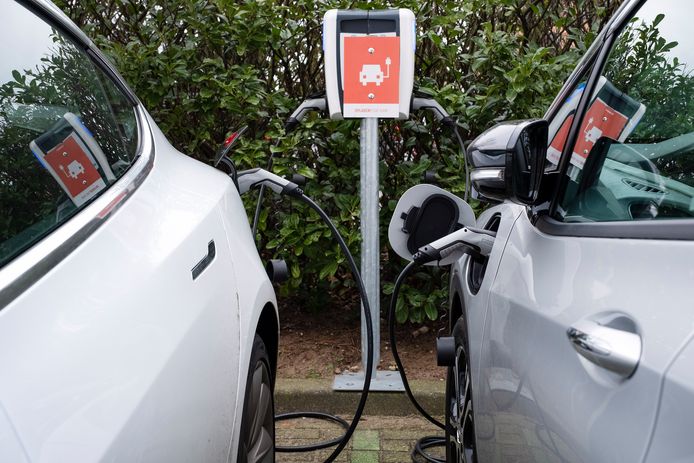Purchasing an all-electric vehicle is now a more economical decision than choosing a petrol or diesel vehicle, however, not all smaller models are cheaper yet.
Electric vehicles are growing in popularity, with the sale of these cars now accounting for 16% of all vehicles sold in Belgium. However, the majority of these are registered as company cars as the Federal Government's tax reforms make emission-free company cars more fiscally attractive.
Despite the financial and environmental advantages of an all-electric vehicle, just 12% of respondents to a Vias survey said that they would like to purchase one.
The belief that they are much more expensive than vehicles powered by fossil fuels is the main reason behind this reluctance, as the purchase price of a car is often the deciding factor when buying a new vehicle.
Vias road safety institute debunked this prejudice in a report published on Thursday, based on the total cost of ownership (TCO), which takes into account the purchase price as well as other costs such as fuel, insurance and taxes.
“If you assume a lifespan of nine years and an average use of 15,000 kilometres per year, a fully electric car is already the best solution from a financial point of view,” the road safety institute argued.
The higher purchase price is therefore offset by lower fuel costs and the fact that these vehicles lose less of their value upon resale. However, for private use, this conclusion does not apply to smaller, middle-range electric cars (such as Peugeot and Volkswagen models).
Monitoring of risks
Vias also noted that some issues still remain regarding the safety of a transition towards an all-electric fleet of vehicles in Belgium: due to the small fraction of the total vehicle fleet being fully electric, it is difficult to assess how safe electric vehicles are on the road.
“The current generation of electric vehicles is often heavier, on average, than vehicles with a fuel engine. An electric car also has its full power available immediately. Electric cars make less noise at low speeds, which may mean that not every road user hears them approaching adequately,” VIAS noted.
The road safety institute concluded that these risks must be “closely monitored” and stressed the need for “smaller, lighter electric cars.”
Not-so-eco-friendly hybrids
Meanwhile, Vias found that some 20% of drivers surveyed stated that they did want to buy a plug-in hybrid as their next vehicle. While these were once advertised as the more environmentally conscious option, they are not as economical or ecological as electric cars.
The vehicles are heavier and consume more energy and fuel. Despite this, there are now nearly twice as many plug-in hybrids as there are fully electric cars in Belgium.
A recent study conducted by European NGO Transport & Environment (T&E) concluded that, during tests of city driving, the battery life of hybrid vehicles was between 25% and 50% lower than advertised.
The group also claimed that the popular BMW X5, Volvo XC60, and Mitsubishi Outlander hybrid vehicles emitted between 28-29% more CO2 than the manufacturer claimed. When the internal battery is depleted, vehicles could only travel 11-12 kilometres on their petrol engines before surpassing their advertised CO2 emissions per kilometre.
Related News
- 'Cultural problem': Many Belgian drivers still break speed limits
- EU negotiators reach provisional agreement on developing an electric charging network
Accounting for manufacturing, electric vehicles emit on average only half the CO2 of a diesel or petrol engine over their entire lifetime.
Despite this, scepticism and apathy still reign, and many Belgians remain attached to their petrol vehicles, despite a looming ban on the sales of new combustion engine cars by 2035. A survey conducted by BNP Paribas Fortis in December 2022 revealed that as many as 35% of Belgians were unwilling to make a switch within the next five years.

